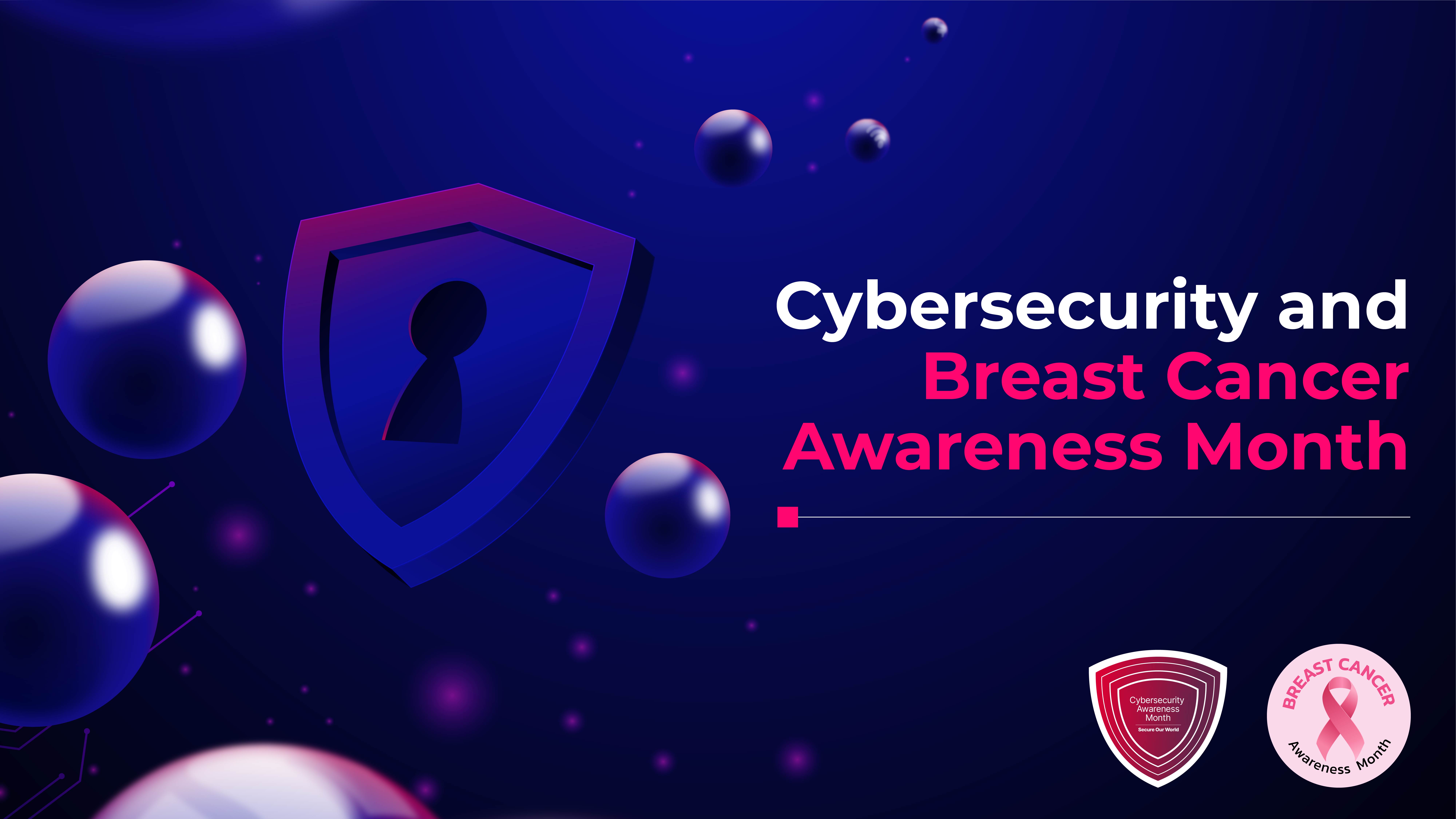Cybersecurity and Breast Cancer Awareness Month
How AI Drives Early Detection in Both Healthcare and Cybersecurity

Introduction
October is a month of dual awareness: Cybersecurity Awareness Month and Breast Cancer Awareness Month. At first glance, these causes seem disconnected, but they are deeply interconnected through artificial intelligence (AI). Whether it’s identifying a hidden cancer cell or detecting a cyber threat, AI’s strength lies in early detection —helping prevent major issues before they become crises.
In this blog, we’ll explore how AI serves both the medical and cybersecurity worlds, and why early detection matters in both fields. We’ll also look at how CyberAlliance tools provide essential protection to businesses and healthcare providers, ensuring patient safety and digital security.
AI in Cybersecurity: Detecting Threats Before They Cause Harm
Cybersecurity is no longer just about building firewalls and reacting to breaches after they happen. With AI, organizations can analyze patterns across networks in real-time to detect abnormal behavior before an attack takes root. AI-driven cybersecurity tools act as watchdogs that never sleep, scanning systems continuously for suspicious activity.
For example, AI helps prevent phishing attacks and malware intrusions by identifying subtle changes—like unusual login attempts or unauthorized access to data. By raising early alerts, these systems allow IT teams to block attacks and prevent damage before it occurs.
This proactive detection ensures data stays protected, and businesses avoid the financial and reputational fallout that comes with breaches. For healthcare organizations, it’s especially crucial to secure patient records, as breaches in these environments not only affect privacy but can also disrupt patient care.
AI in Breast Cancer Detection: Catching Cancer Early to Save Lives
In healthcare, early detection is the most effective way to fight breast cancer. The earlier a tumor is detected, the better the chances of successful treatment and survival. However, even with advanced imaging technology, subtle abnormalities may be missed by the human eye—this is where AI shines.
AI-powered diagnostic tools can analyze mammograms, MRIs, and X-rays with precision. By comparing new scans with extensive datasets, these algorithms detect even the tiniest signs of cancer—long before symptoms appear. This ensures that patients receive timely care, leading to better outcomes.
Just as AI in cybersecurity looks for anomalies within a network, AI in healthcare searches for unusual patterns in medical images. Both rely on early detection to prevent worst-case scenarios, whether it’s preventing a ransomware attack or detecting cancer before it spreads.
The Power of Early Detection in Cybersecurity and Healthcare
Both cybersecurity and healthcare depend on AI’s ability to anticipate problems and act early these fields:
- Speed is Essential: Whether it’s identifying a network breach or diagnosing cancer, the earlier you act, the better the outcome.
- Learning and Evolving: AI tools in both fields become more effective over time by analyzing data and adapting to new threats or medical insights.
- Prevention vs. Reaction: Stopping a threat before it causes harm—whether a tumor or a cyberattack—saves lives and resources.
- AI empowers organizations to shift from reactive strategies to proactive defense.
How CyberAlliance Products Help Healthcare Providers Stay Secure
Healthcare organizations face unique challenges: they must not only manage sensitive patient data but also keep medical devices secure. This is where CyberAlliance’s specialized tools make a significant difference. Let’s explore two standout solutions tailored to meet these needs:
- bizSAFE: Unified Endpoint Management for Healthcare
bizSAFE offers a comprehensive way to manage and secure devices used by doctors, nurses, and administrative staff. From mobile devices to desktops, bizSAFE provides a centralized console for managing both corporate-owned and BYOD (bring-your-own-device) scenarios. This makes it easy to enforce security policies across an entire healthcare organization—ensuring that everything from patient tablets to office laptops remains protected.
What sets bizSAFE apart is its AI-powered threat detection. The platform monitors devices in real-time, spotting suspicious behavior—such as unauthorized data access or unapproved software installations—and takes corrective action immediately. For healthcare environments, this means less downtime and more secure patient care.
With native security features, bizSAFE ensures that medical devices stay protected from both external and internal threats—allowing healthcare professionals to focus on saving lives rather than worrying about cyber risks. - Trust Scan: Finding Vulnerabilities Before Hackers Do
Just as AI scans medical images to spot early signs of cancer,Trust Scan evaluates healthcare networks and applications to identify vulnerabilities before attackers exploit them. Trust Scan offers an “outside-in” assessment, analyzing your systems for outdated software, weak authentication mechanisms, and misconfigurations that cybercriminals could target. By identifying these risks early, Trust Scan allows healthcare IT teams to fix issues before they become security breaches.
In a sector where even a brief network outage can impact patient care, Trust Scan ensures hospitals and clinics maintain seamless, secure operations
Aditionally, Trust Scan’s assessments extend to web and mobile applications—ensuring that patient portals and mobile health apps are safe from unauthorized access and data leaks. This proactive approach gives healthcare organizations peace of mind and builds trust with patients on secure digital services.
Conclusion: AI Empowers Healthcare and Cybersecurity to Thrive
As we observe Cybersecurity Awareness Month and Breast Cancer Awareness Month, it’s clear that AI plays a vital role in both fields. Whether it’s spotting a tumor early or blocking a cyber threat before it strikes, AI-driven solutions emphasize proactive care and defense.
CyberAlliance’s tools—such as bizSAFE and Trust Scan—empower healthcare organizations to manage devices efficiently and securely while also detecting vulnerabilities that could compromise patient care. These solutions ensure that healthcare providers can focus on what matters most: delivering quality care without worrying about cybersecurity risks.
So, while you’re wearing your pink ribbon and brushing up on cybersecurity practices this October, take a moment to reflect on the power of AI and early detection. Whether it’s in healthcare or cybersecurity, acting early makes all the difference—and with the right tools in place, you’ll always be one step ahead.